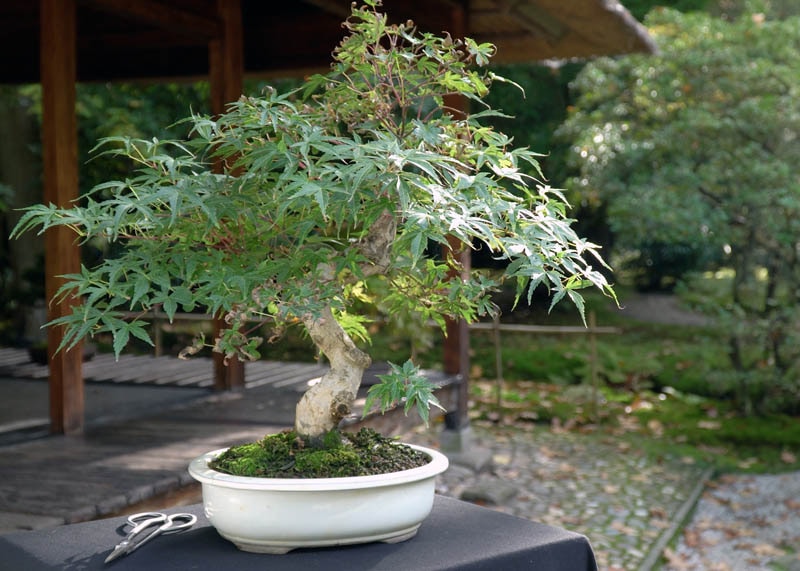The Japanese Maple Bonsai Tree is beautiful and elegant. It is a popular choice for bonsai lovers. This tree is known for its delicate leaves and stunning colors. Let’s explore the world of the Japanese Maple Bonsai Tree.
History of the Japanese Maple Bonsai Tree
The Japanese Maple Tree has a rich history. It originated in Japan, Korea, and China. This tree has been cultivated for centuries. People admire its beauty and grace. The Japanese Maple became popular in bonsai art. Bonsai is the art of growing miniature trees. This art form started in China over a thousand years ago. It was later refined in Japan.
Types of Japanese Maple Bonsai Trees
There are many types of Japanese Maple Trees. Each type has unique features. Here are some popular types for bonsai:
- Acer palmatum: This is the most common type. It has green leaves that turn red in fall.
- Acer palmatum ‘Atropurpureum’: This type has purple leaves. It is also known as the Red Japanese Maple.
- Acer palmatum ‘Dissectum’: This type has finely cut leaves. It is also called the Laceleaf Japanese Maple.
Why Choose a Japanese Maple Bonsai Tree?
Japanese Maple Bonsai Trees are very attractive. They are perfect for indoor and outdoor spaces. Here are some reasons to choose a Japanese Maple Bonsai Tree:
- Beauty: These trees have stunning colors and delicate leaves.
- Elegance: They add a touch of elegance to any space.
- Easy to Grow: They are suitable for beginners and experts.
- Versatility: They can be grown in various styles and shapes.
How to Grow a Japanese Maple Bonsai Tree
Growing a Japanese Maple Bonsai Tree is fun and rewarding. Follow these steps to grow your own:
1. Choose The Right Pot
Choose a pot that is shallow and wide. The pot should have drainage holes. This helps prevent waterlogging. A good pot ensures healthy root growth.
2. Select The Right Soil
Use well-draining soil. A mix of akadama, pumice, and lava rock is ideal. This soil mix provides good drainage and nutrients.
3. Plant The Tree
Place the tree in the pot. Spread the roots evenly. Add soil around the roots. Press the soil gently to remove air pockets. Water the tree thoroughly after planting.
4. Watering
Water the bonsai regularly. Keep the soil moist but not soggy. Check the soil daily. Water when the top layer feels dry.
5. Fertilizing
Fertilize the tree during the growing season. Use a balanced bonsai fertilizer. Apply the fertilizer every two weeks. Reduce fertilizing in winter.
6. Pruning And Wiring
Prune the tree to shape it. Remove dead or unwanted branches. Use bonsai wire to train the branches. Be gentle to avoid damaging the tree.
7. Repotting
Repot the tree every two to three years. This prevents root-bound issues. Trim the roots and replace the old soil. Repotting promotes healthy growth.
8. Protection
Protect the tree from extreme weather. In winter, keep it in a cool, frost-free place. In summer, provide shade to prevent leaf burn.
:max_bytes(150000):strip_icc()/growing-japanese-maple-bonsai-5085314_02-d3f41f2a659e4d1ba5d1eb2b53978277.jpg)
Credit: www.thespruce.com
Common Problems and Solutions
Japanese Maple Bonsai Trees can face some problems. Here are common issues and solutions:
| Problem | Solution |
|---|---|
| Leaf Scorch | Provide shade and water regularly. |
| Pests | Use insecticidal soap or neem oil. |
| Root Rot | Ensure well-draining soil and avoid overwatering. |
| Leaf Drop | Check for pests and ensure proper watering. |
Significance of the Japanese Maple Bonsai Tree
The Japanese Maple Bonsai Tree has cultural significance. It symbolizes peace, balance, and harmony. In Japan, it represents strength and endurance. This tree is a symbol of beauty and grace. It inspires patience and dedication in bonsai enthusiasts.
Conclusion
The Japanese Maple Bonsai Tree is a true masterpiece. It adds beauty and elegance to any space. Growing and caring for this tree is a rewarding experience. Follow the steps and tips in this guide. Enjoy the beauty and tranquility of your Japanese Maple Bonsai Tree.


